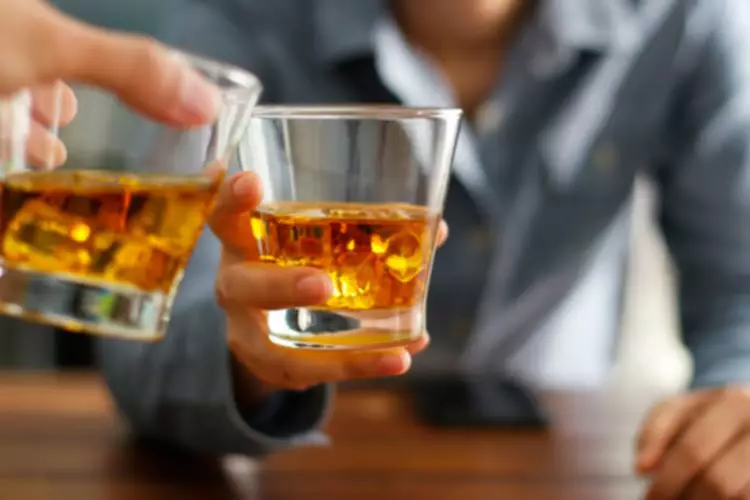
It’s not just your imagination, and it’s not because they’re bad people. So next time you observe someone drinking heavily at a gathering or bar scene try applying this guide. Remember though that everyone reacts differently to alcohol so these should serve only as general pointers rather than definitive conclusions. Now let’s consider body language as well – it’s surprisingly revealing!
Alcohol-Induced Aggression
This can make it harder for you to think clearly and manage your behavior, leading to increased aggression. We’ve heard of the “raging alcoholic” or “angry drunk” stereotype, but is there any truth to the idea? What is a raging alcoholic, and how does alcohol send someone into a drunken rage?

Dealing with Violence or Abuse

The existence of an angry “crazy drunk person” is often featured in TV shows and movies because of the rising drama and action they bring to an entertaining storyline. Less than an hour after the cruise ship set sail from Pedro, Virgil, 35, reportedly bbegan threatening to kill other people onboard and assaulted two members of the crew. Virgil’s heartbroken family said the outburst was uncharacteristic of the dad, who was onboard the ship with his 7-year-old autistic son and his fiancé. His family believe security injected him with some kind of sedative, FOX 11 reports. Fortunately, people who become irrationally mad when drunk can work to prevent and treat their behavior. Overall, exhibiting one or https://ecosoberhouse.com/ a combination of the above factors can increase your chances of becoming angry when intoxicated.

Impulsivity, alcohol, and rage
These days, people who misuse alcohol can enroll in various treatment programs, whether you choose the 12-step approach or decide to enter residential treatment. If you’re looking for help getting started, it’s wise to speak with your physician first. Together, you can choose the best course of treatment for your needs. To combat aggressive behavior when drinking, individuals should consciously seek help. If you feel like you have a pattern of being aggressive when drinking alcohol, you should understand how your behavior can impact yourself and others. It’s sometimes easier for angry people to become aggressive when they’re inebriated.
The Psychology Behind Alcohol-Induced Aggression
CBT is a diverse psychotherapy that focuses on identifying unhelpful thoughts and behaviors and creating new, helpful patterns of thinking and feeling. Anger expression may also be confused with aggression or hostility, two consequences of drinking commonly cited in research. Extreme emotions that are usually hidden from others, like anger and sadness, may be more noticeable when you drink because you’re less able to conceal and manage them. When they come out, others notice them because they’re not a part of the everyday social experience. It’s common for alcohol and anger to be stereotypically lumped together, but many people labeled “angry” while drinking may actually be experiencing aggression or hostility.
As you become more self-aware, you’ll make better choices about alcohol consumption. In addition to receiving guidance from experienced professionals, support groups are effective for building relationships. Recovering from an alcohol use disorder can be isolating, especially when you consider how widespread drinking culture is in the United States. In a support group, you can meet like-minded individuals who can help make recovery that much easier. If a health Drug rehabilitation professional has diagnosed you with anger management problems, you may find these get worse when you drink. Alongside quitting alcohol, you could benefit from attending an anger management support group.

If you’re suppressing a lot of anger – say, frustration overwork or relationship trouble – there’s a good chance that anger will be a lot less suppressed once you’ve had a few drinks. But if you’re a weepy drunk or a loud, obnoxious drunk, you’re much less likely to be destructive and cause lasting trouble for yourself and others. There are many different “drinking personalities,” but angry drunks have a much higher chance of becoming violent when they drink. But the problem with an angry drunk is that they may have a very skewed memory of their own actions after the fact.
Health Conditions
- However, for some, alcohol can cause anger and aggression, which can become a real problem.
- Rage can be triggered by many things, over words at a social gathering, being refused another drink, or even from perceived slights.
- If you’re an angry drunk yourself, you probably do a lot of things you regret.
The key to validating their experience without feeding into their anger lies in empathy and active listening. But if the altercation is happening in your own home, or you can’t leave the situation for whatever reason, you may need to turn to some of the other strategies listed below. It is best to choose a time when your friend is thinking clearly and seems receptive. Let them know you are concerned about the pattern you have noticed and how they may benefit from a recovery program. They may not be aware of the newer and more convenient options that exist today. Anger is a normal human emotion that we all feel at times and for different reasons.
What is the link between anger and alcohol?
Researchers were studying people in the drunk rage Finnish population, of which more than 100,000 people have the genetic variation. Drinking can have a relaxing or anxiety-relieving effect by mimicking the «chill-out» effects of GABA. At the same time, alcohol hinders the neurotransmitter glutamine, which has a stimulating effect. But once GABA is metabolized, it mostly converts to glutamine, causing excitement (6).

